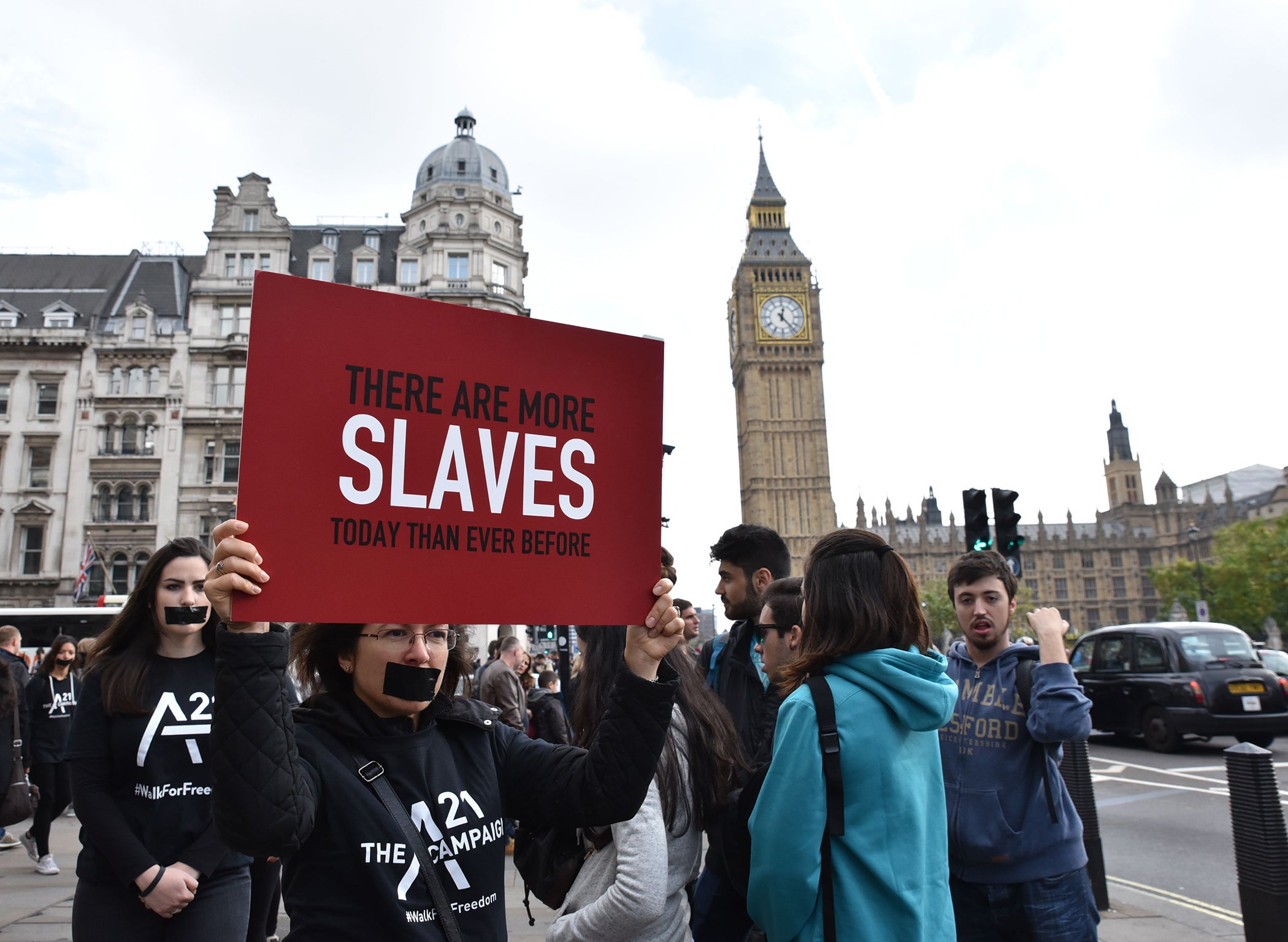Dozens of MPs and 80,000 members of public urge Home Office to reverse decision to refuse child slavery victim asylum
Exclusive: Nineteen-year-old was trafficked to the UK at the age of 10 and exploited in a cannabis farm

Your support helps us to tell the story
From reproductive rights to climate change to Big Tech, The Independent is on the ground when the story is developing. Whether it's investigating the financials of Elon Musk's pro-Trump PAC or producing our latest documentary, 'The A Word', which shines a light on the American women fighting for reproductive rights, we know how important it is to parse out the facts from the messaging.
At such a critical moment in US history, we need reporters on the ground. Your donation allows us to keep sending journalists to speak to both sides of the story.
The Independent is trusted by Americans across the entire political spectrum. And unlike many other quality news outlets, we choose not to lock Americans out of our reporting and analysis with paywalls. We believe quality journalism should be available to everyone, paid for by those who can afford it.
Your support makes all the difference.Dozens of MPs and more than 80,000 members of the public have urged the Home Office to reconsider its decision to refuse asylum to a child slavery victim which would see him forced to return to the country from which he was trafficked.
Nineteen-year-old orphan Stephen, whose real name cannot be revealed for his own protection, was trafficked to the UK at the age of 10 and exploited in a cannabis farm, where he was forced to endure dangerous conditions and regular beatings.
After six years, Stephen was found by police aged 16 and placed into foster care, where he began rebuilding his life by attending school, making friends and becoming part of his local community in the north-east of England.
But a year later, he lost his automatic right to remain in the country and applied for asylum. His claim was refused by the Home Office in December, meaning he faces removal to a country he has not visited in nine years and where he has no family or support network.
Now the teenager is being backed by 32 cross-party MPs and more than 80,000 members of the public, who have signed an open letter to home secretary Amber Rudd stating that to “forcibly remove him back to a country where he has no family goes against everything we stand for as a country”.
The letter concludes: “We urge you to reconsider the decision to refuse Stephen asylum in the UK and show that Britain is proud to protect victims of modern slavery.”
Chloe Setter, head of advocacy, policy and campaigns at leading child trafficking charity ECPAT UK, said: “Sadly, Stephen’s case is not uncommon. We know that thousands of children are exploited in the UK, many of them trafficked from Vietnam.
“Once found by authorities, instead of being provided with stability and safety, they often face an uphill battle to access specialist support and to secure their status. The protection of these young people must be paramount and not determined by immigration objectives."
She added: “To remove Stephen to Vietnam where he could face a real risk of re-trafficking is cruel and goes against the UK’s strong stance on tackling modern slavery.”
Cathy Warren, campaigner at 38 Degrees which is running the campaign with Stephen’s family, said: “The Home Office’s decision to refuse asylum to ‘Stephen’, a young man identified by the Government as a victim of modern slavery, betrays the Home Secretary’s commitment to putting victims first.
“The MPs, religious leaders and thousands of members of the British public who have backed this open letter shows there is significant pressure on Amber Rudd to intervene.”
It comes after The Independent reported on stark warnings from authorities that the National Referral Mechanism (NRM) – the UK’s official framework for identifying victims of human trafficking – was failing to protect young people both during and after the identification process.
Social workers, police and lawyers said children as young as 13, from a number of countries including the UK, were subsequently identified as victims of slavery and recorded on the national database, but then slid back into exploitation within weeks or even days.
Join our commenting forum
Join thought-provoking conversations, follow other Independent readers and see their replies
Comments